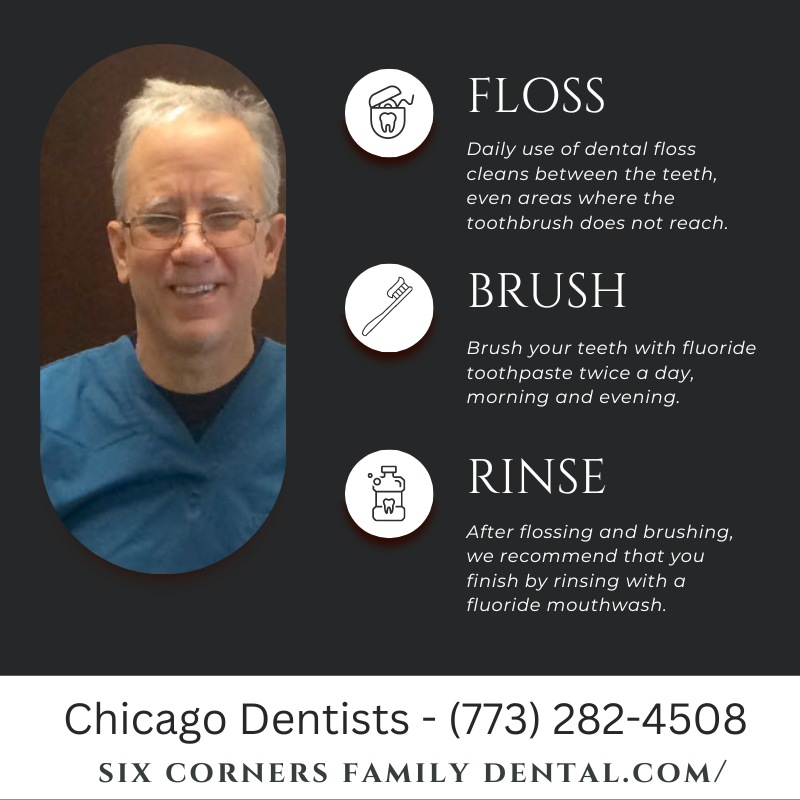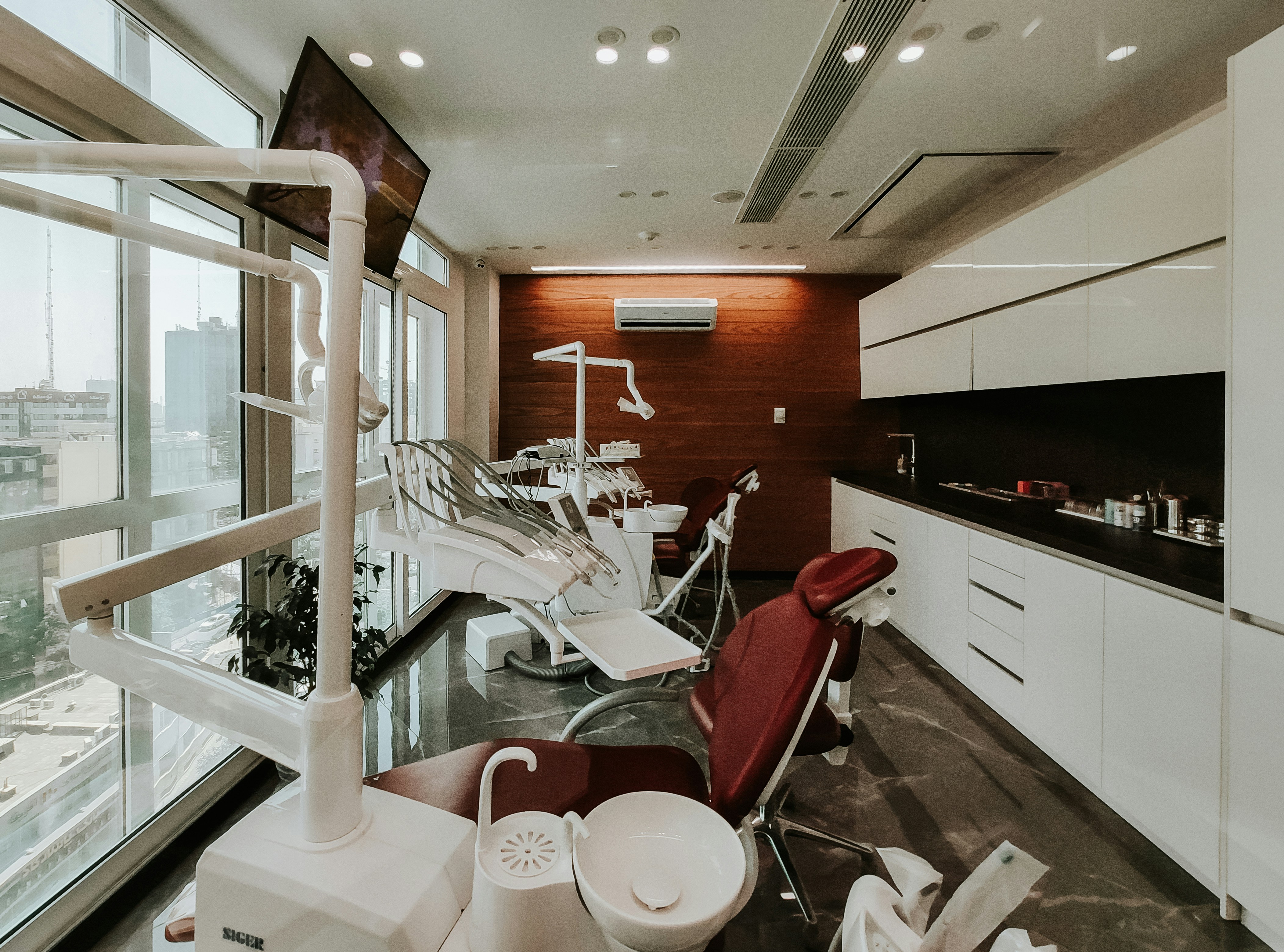Chicago Dental Emergency Dentist – Larry A. Fisher
In case of a dental emergency, it is important to stay calm and take the necessary actions to mitigate the situation. First, assess the severity of the emergency and determine if immediate professional attention is required. If so, then by all means call us at our special 24/7 dental emergency number below.
Call Chicago Emergency Dentist 24/7 – (224) 558-4508
—> Setup a Chicago Dental Appointment
If you are experiencing severe pain, excessive bleeding, or have a knocked-out tooth, it is crucial to seek immediate dental care. In the meantime, you can rinse your mouth with warm saltwater to alleviate any discomfort and apply a cold compress to reduce swelling.
Next, if you have a cracked or chipped tooth, try to collect any broken pieces and rinse your mouth with warm water. Avoid chewing on that side of your mouth and schedule an appointment with your dentist as soon as possible.
For a lost filling or crown, you can use dental cement or sugarless gum to temporarily cover the affected area until you can see your dentist. Remember, it is always best to consult with a professional when faced with a dental emergency to ensure proper treatment and prevent any further complications.
Chicago Dental FAQs
What Should I Do In Case Of A Dental Emergency?
Dental emergencies can be stressful and overwhelming, but knowing what to do in these situations can help you stay calm and take the necessary actions to alleviate pain and prevent further damage. In this article, we will guide you through the steps you should follow in case of a dental emergency.
Identifying a Dental Emergency
Not all dental problems require immediate attention, so it’s important to differentiate between a dental emergency and a non-emergency situation. Dental emergencies generally involve severe pain, excessive bleeding, or structural damage to the teeth or mouth. If you’re experiencing any of these symptoms, it’s crucial to take swift action.
Immediate Actions to Take
In case of a dental emergency, it is important to address the issue immediately to prevent further complications. The first step is to remain calm and assess the situation. If there is bleeding, apply gentle pressure with a clean cloth or gauze to control it. Rinse your mouth with warm saltwater to reduce swelling and clean the affected area. If a tooth is dislodged or knocked out, handle it by the crown and avoid touching the root.
Calling the Dentist
After taking immediate actions, it’s crucial to contact your dentist as soon as possible. Explain the situation to your dentist and provide any details that may help them understand the severity of the emergency. If the incident occurs during office hours, your dentist may be able to see you promptly. However, if it happens after hours, you may need to seek emergency dental care or wait until your dentist is available.
Managing Pain and Discomfort
Dental emergencies often come with significant pain and discomfort. Over-the-counter pain relievers can be helpful in managing the pain temporarily until you can see your dentist. Avoid using aspirin directly on the affected area, as it may cause further irritation. Applying a cold compress to the outside of the mouth can also help reduce swelling and alleviate discomfort.
Dealing with a Knocked-out Tooth
If a tooth gets knocked out, time is of the essence. Try to gently place the tooth back into the socket, making sure to avoid touching the root. If this is not possible, keep the tooth moist by placing it in a container of milk or saliva. Immediately visit your dentist, as they may be able to reattach the tooth if treated promptly.
Handling a Broken Tooth
A broken tooth requires immediate attention to prevent further damage and potential infection. Rinse your mouth with warm saltwater to clean the area and remove any debris. Save any broken pieces of the tooth and bring them to your dentist. Your dentist will evaluate the situation and recommend the appropriate treatment, which may include dental bonding, a dental crown, or even a root canal if the damage extends to the tooth’s pulp.
Treating a Severe Toothache
Toothaches can be incredibly painful, and if left untreated, they can worsen over time. Rinse your mouth with warm saltwater to alleviate pain and reduce swelling. Floss gently to remove any food particles that may be causing the discomfort. If the toothache persists, contact your dentist for an evaluation. They will diagnose the underlying cause of the pain and provide the necessary treatment, which may involve filling a cavity, performing a root canal, or extracting the tooth if necessary.

Preventing Dental Emergencies
While dental emergencies can happen unexpectedly, there are certain preventive measures you can take to minimize the risk. Maintain good oral hygiene practices by brushing twice a day, flossing regularly, and scheduling routine dental check-ups. Avoid biting on hard objects or using your teeth as tools. If you participate in contact sports, wear a mouthguard to protect your teeth from potential trauma.
In conclusion, dental emergencies require immediate attention to prevent further complications and alleviate pain. By following the steps outlined in this article, you can effectively handle a dental emergency until you can see your dentist. Remember to stay calm, contact your dentist promptly, and prioritize your oral health to prevent dental emergencies whenever possible.
For more information and professional guidance, consult with a reputable dentist like Dr. Larry A. Fisher of Six Corners Family Dental. Visit their website at sixcornersfamilydental.com for valuable resources and to schedule an appointment.
Contact Chicago Dentist Larry A. Fisher, DDS
(773) 282-4508
(224) 558-4508 – Chicago Emergency Dentist 24/7
—> Setup a Chicago Dental Appointment
DENTAL FAQ POSTS
🦷 View our Dental Crown Guide & FAQ’s


